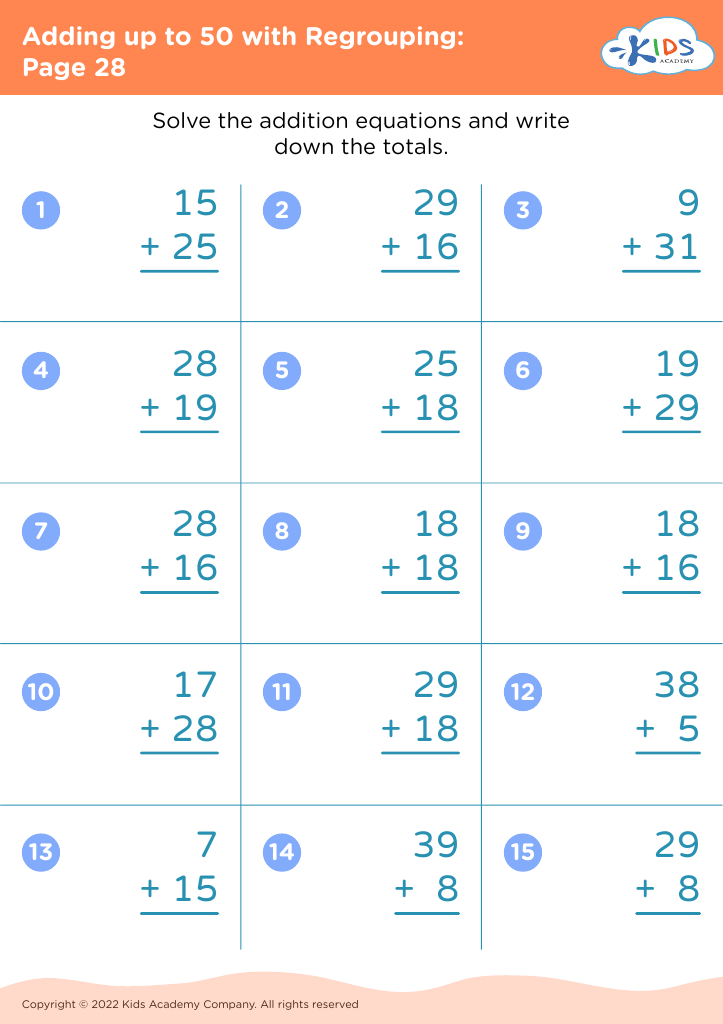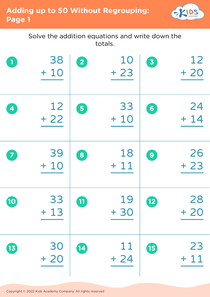Addition skills Adding up to 50 with Regrouping Worksheets for Ages 6-8
3 filtered results
-
From - To
Enhance your child’s math abilities with our "Addition Skills Adding up to 50 with Regrouping Worksheets for Ages 6-8." Tailored to young learners, these engaging worksheets are perfect for mastering addition with regrouping. Designed to build a strong foundation in basic arithmetic, they feature a variety of exercises that challenge, educate, and motivate. Helping children understand regrouping sets the stage for more complex math skills later on. Ideal for home or classroom use, our worksheets make math practice fun and effective. Download today to support your child’s journey in becoming confident in addition and better prepared for future math success.
Addition skills, especially adding up to 50 with regrouping, form the cornerstone of early mathematical learning for children ages 6-8. At this developmental stage, young learners build foundational cognitive abilities that will influence their academic progress in more complex math as well as in other subjects. Learning to add numbers up to 50, including figuring out regrouping strategies, enhances children's number sense, which is crucial for understanding larger mathematical concepts like multiplication, division, fractions, and algebra.
Additionally, developing these skills helps to improve problem-solving abilities and critical thinking. When children practice regrouping, they begin to understand place value concepts, recognizing that numbers are made up of tens and ones. This deep comprehension makes arithmetic more intuitive and less about rote memorization. Moreover, mastering these early math skills boosts a child’s confidence and reduces math-related anxiety, fostering a positive attitude toward learning.
Parents and teachers should care deeply about these skills because they are not isolated mathematics competencies; they lay the groundwork for future success across all STEM (Science, Technology, Engineering, Mathematics) fields. More so, these skills have practical applications in daily life situations such as shopping, cooking, and even time management. By focusing on these essential skills early on, adults are setting children on a path toward academic achievement and practical problem-solving prowess.
















